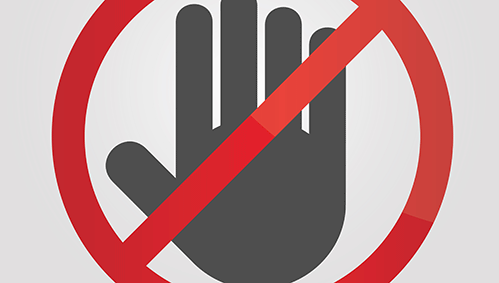
Jun 2, 2016 ● Kate Lopaze
The Best Questions to Ask During A Job Interview
The interview has gone really well so far: you were exactly five minutes early, you hit all of your talking points in a confident and conversational way, and it turns out that both you and the interviewer went to Camp Mohegan (and you both remembered the secret handshake). Now things are winding down, and you can practically smell the new-folder scent of your employee orientation packet. Before you can collect your bag and use your superb (non-secret) interview handshake to close things out, though, there’s one more question: “Do you have any questions for me?” Here's why questions to ask during an interview are really important.
If you’re not prepared, this is a chance for that unappealing deer-in-headlights moment. It may not be a total dealbreaker, but it can definitely undermine all the highlights of your interview up to this point.
 Basically, interviewers are asking you if you have any questions for them for a few reasons:
Basically, interviewers are asking you if you have any questions for them for a few reasons:
 Interview prep is usually about how to frame yourself for maximum interview success: the resume points you want to emphasize, the specific anecdotes that show your leadership skills or your problem solving skills, and body language (posture, handshake, a hire-me smile that doesn’t scare anyone). But while you’re planning and practicing those things, also think about what you can ask the interviewer.
According to The Interview Guys, the questions aren’t so much asking any old question as they are about asking the right ones, intelligently. This means focusing on the job itself, not generic things like “how many people are in the company?” or “what’s the current stock price?”
To help you prep, you can break down questions into these different areas:
Interview prep is usually about how to frame yourself for maximum interview success: the resume points you want to emphasize, the specific anecdotes that show your leadership skills or your problem solving skills, and body language (posture, handshake, a hire-me smile that doesn’t scare anyone). But while you’re planning and practicing those things, also think about what you can ask the interviewer.
According to The Interview Guys, the questions aren’t so much asking any old question as they are about asking the right ones, intelligently. This means focusing on the job itself, not generic things like “how many people are in the company?” or “what’s the current stock price?”
To help you prep, you can break down questions into these different areas:
 As you think about what questions to ask the interviewer, here are some examples in the categories we outlined above. Again, make sure these are as specific as possible to the job for which you’re applying, so that it sounds like you’re engaged and enthusiastic to learn more.
As you think about what questions to ask the interviewer, here are some examples in the categories we outlined above. Again, make sure these are as specific as possible to the job for which you’re applying, so that it sounds like you’re engaged and enthusiastic to learn more.
 There are some areas where you just shouldn’t go with your table-turning questions.
There are some areas where you just shouldn’t go with your table-turning questions.
1. Why Do You Need to Ask Questions?
2. How to Prep Your Questions for the Interview
3. What to Ask During the Interview
4. What Not to Ask During the Interview
[mks_separator style="solid" height="10"]Why Do You Need to Ask Questions?
 Basically, interviewers are asking you if you have any questions for them for a few reasons:
Basically, interviewers are asking you if you have any questions for them for a few reasons:
- It’s polite.
- They’re out of questions themselves.
- They want to see how you interact.
- They want to gauge your interest in the job.
- Engagement: You are actively interested in the opportunity.
- Intelligence: You get what the job entails, and how you could fit into it.
- Confidence: You know you can do the job well and be an asset to the company.
- Social intelligence: You understand the give-and-take interactions, and present yourself well.
How to Prep Your Questions for the Interview
 Interview prep is usually about how to frame yourself for maximum interview success: the resume points you want to emphasize, the specific anecdotes that show your leadership skills or your problem solving skills, and body language (posture, handshake, a hire-me smile that doesn’t scare anyone). But while you’re planning and practicing those things, also think about what you can ask the interviewer.
According to The Interview Guys, the questions aren’t so much asking any old question as they are about asking the right ones, intelligently. This means focusing on the job itself, not generic things like “how many people are in the company?” or “what’s the current stock price?”
To help you prep, you can break down questions into these different areas:
Interview prep is usually about how to frame yourself for maximum interview success: the resume points you want to emphasize, the specific anecdotes that show your leadership skills or your problem solving skills, and body language (posture, handshake, a hire-me smile that doesn’t scare anyone). But while you’re planning and practicing those things, also think about what you can ask the interviewer.
According to The Interview Guys, the questions aren’t so much asking any old question as they are about asking the right ones, intelligently. This means focusing on the job itself, not generic things like “how many people are in the company?” or “what’s the current stock price?”
To help you prep, you can break down questions into these different areas:
- The Job: What do you want to know about the nitty-gritty of life in this role?
- The Requirements: Are you equipped to take over this role? Or is there anything you can do to prepare?
- The Expectations: How does the company see this role, and what do they expect from the person who steps into it?
- The Company: What is this company really like?
- The People: What qualities do your possible future coworkers have? What do they value?
- The Follow-up: When is the company planning to fill this position? (This can help manage your expectations.)
You Can Bring a Cheat Sheet
Notes are fine to bring into an interview. There will be no Teleprompter, and you don’t get bonus points for memorizing and repeating canned responses. If you do decide to bring in notes with you, keep them limited to bullet points on an index card or small notebook. You don’t want to spend your time looking down at your novelized questions instead of making eye contact and engaging with the interviewer. Basically, you should come up with your list of tentative questions ahead of time, and know them pretty well, bringing notes only as a cheat sheet if you need them. Nothing stops the momentum of a good interview like pausing to shuffle through your notes in a moment of awkward silence. [mks_separator style="solid" height="10"]What to Ask During the Interview
 As you think about what questions to ask the interviewer, here are some examples in the categories we outlined above. Again, make sure these are as specific as possible to the job for which you’re applying, so that it sounds like you’re engaged and enthusiastic to learn more.
As you think about what questions to ask the interviewer, here are some examples in the categories we outlined above. Again, make sure these are as specific as possible to the job for which you’re applying, so that it sounds like you’re engaged and enthusiastic to learn more.
The Job
- Can you describe what a typical day is like as an [insert job title]?
- What do you see as the biggest challenge for someone in this position?
RELATED: 7 Interview Questions That Will Make You Stand Out
The Requirements
- What kind of training can I expect if I’m hired for this job?
- Is there any training you would recommend in the meantime?
The Expectations
- Can you tell me about the performance expectations for this role?
- Thinking about the long term, can you give a quick outline of the path for advancement in this department?
- What are the employee review processes for this role?
The Company
- What would you say is the overall mission of this company?
- How would you say the company fits into the industry as a whole?
- What’s your favorite part of working here?
- What’s your least favorite part of working here?
- How does the company approach work-life balance?
The People
- How big is the team I’d be working with?
- Which other departments would I be working with as a [insert job title]?
- Can you give a brief description of the team members I’d be working with?
- If you could describe the team here in one word, what would it be?
- How would you describe the working environment here?
- Can you tell me about my direct manager? (Note: This one really only works if you’re being interviewed by a recruiter or HR person.)
- Can you describe your management style? (This is the equivalent if you’re being interviewed by the person to whom you’d be reporting.)
The Follow-Up
- Can I email you with any additional questions if I think of any later?
- Do you know what the approximate timeline is for filling this position?
- What are the next steps?
- Is there anything else I can provide?
- We talked a little bit about my experience with [example based on job description]. Is there any other info I can provide on that front?
Tips for Framing Questions
- Ask open-ended questions. Basic yes-or-no questions can shut down the conversation, and then you’ll be on the hook for another question even faster.
- Make sure you’re framing it as a question, and not just trailing off. “Is this position subject to an annual review, or…”
- Don’t ask leading or loaded questions, which make it look like you’re fishing for a specific answer. You want to seem like you genuinely want information, and aren’t just looking to confirm something you already know. “Isn’t it true that…”
- If you can, weave your questions throughout the interview. It demonstrates that you’re paying attention, and engaged in the process. If you find you can’t really do that with the conversational flow, save them until the end or until you’re asked if you have questions.
- Keep the tone light and professional. Don’t try to trap the interviewer in a mistake or misstatement, or use the questions aggressively to pin down an answer. You want to seem involved and relatable, not intense and overbearing.
What NOT to Ask During the Interview
 There are some areas where you just shouldn’t go with your table-turning questions.
There are some areas where you just shouldn’t go with your table-turning questions.


